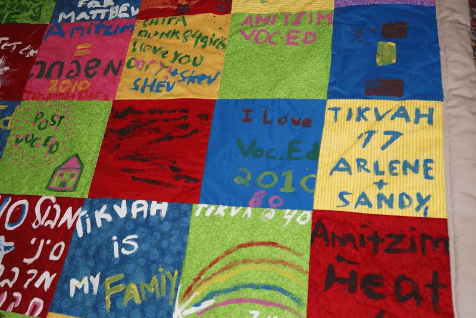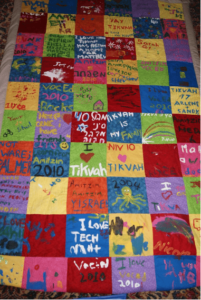Why would a group of Jewish educators spend half a day with a leading Israeli venture capitalist firm? I would like to suggest that educators can learn a great deal from venture capitalists especially if the firm is Jerusalem Venture Partners (JVP), founded in 1993 by Erel Margalit. The firm, currently with $820 million under management, is dedicated to building world class media strategy companies, and also to bringing together “profit and social profit, innovation and creativity, technology and leadership, in one place.
Our JJFF (Jim Joseph Foundation Fellowship) tour began with a tour of JVPs Lab (Ha’Maabada), a performing arts incubator for graduates of Jerusalem’s arts academies. We then learned about Bakehila, an educational empowerment program in four of Jerusalem’s underprivileged neighborhoods (including 15schools and 10 learning centers).
But the main purpose of the visit, in the words of JJFF Israel Seminar Coordinator, Rabbi Zvi Grumet, (Associate Educational Director of the Lookstein Center of Bar Ilan University and editor of Jewish Education News) was to look outside of our own world (of Jewish education) and view models of innovations in the business world to see people who do creative things and think creatively.
Meeting Gavin from the Animation Lab and viewing some of his high quality/high resolution animation, seeing Maor’s work on the soon to be released Anyclip.com project, and learning about Veoh, which just may be the solution to our platform problems, was invigorating.
They cynical part of me things such a visit makes us question why we are in Jewish education when there is so much excitement and life (an maybe even compensation!) in a place like JVP. But maybe a business like JVP is precisely where Jewish educators should look for inspiration and ideas. This will give us the chizuk (reinforcement) we need to stay in Jewish education!
In our short visit, I observed:
1. excited, enthusiastic and super intelligent workers
2. physical space organized for collaboration and sharing (well let work rooms with tables meant for working together; doors, even of bosses, which were literally transparent and inviting, sending the message to come in and share an idea
3. an environment consciously sending the message we are here to take care of you so you can use your professional skills to produce an amazing product (they provide food, administrative support, legal and accounting work, etc to people involved with the projects they support.
4. super cool, innovative products. For example, anyclip.com, now in beta, will be released in a month, allowing people (including Jewish educators) to access that perfect movie clip.
Today, fourteen Jewish educators went from learning about innovation at JVP, to learning about an innovative king, King David (via our afternoon at Ir David, the City of David). May we continued to learn from models of inspiration and bring this excitement back to our various Jewish educational settings.




